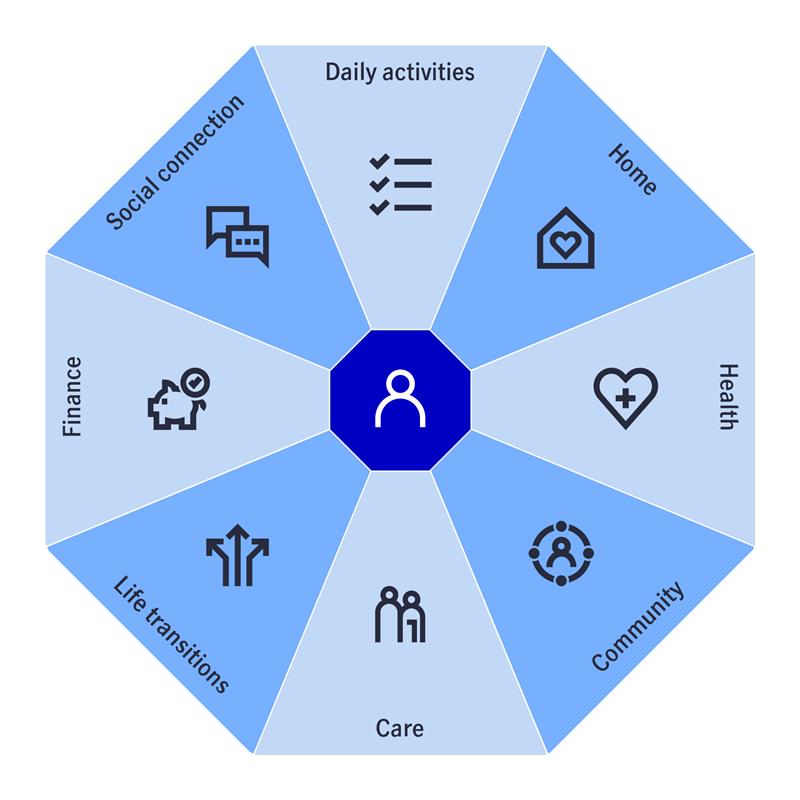Inaugural Longevity Preparedness Index Suggests Americans Are Unprepared for a 100-Year Life
by Adam Felts
How prepared are Americans to live a 100-year life? Retirement readiness has long been conceptualized in terms of financial resources, or, at best, as a combination of money and health. But there has never been a systematic and holistic way to define and measure longevity preparedness.
In collaboration with John Hancock, the AgeLab has developed a powerful and innovative research, policy, and storytelling tool, the Longevity Preparedness Index, or LPI, which assesses and scores Americans’ readiness to live an active, engaging, and healthy 100-year life.
The Index identifies eight domains that are pertinent to wellbeing in later life—health, finances, social connection, community, home, life transitions, daily activities, and care—based on the extant academic literature, interviews with experts, and decades of the AgeLab's own research with adults across the lifespan.
Each of these domains has its own components that indicate preparedness within that domain. Within the care domain, for example, talking to family about the possibility of needing care in the future is a key component of preparedness. Within the community domain, the main component of preparedness is living in proximity to amenities such as parks, community centers, grocery stores, and healthcare providers.
Each domain of preparedness is given an individual score—surfacing knowledge about which areas Americans may be more prepared in than others—with the aggregate of scores comprising an overall LPI score.
In a nationally representative survey of U.S. adults, the inaugural Index, found that America scores a 60 out of 100 in longevity preparedness. That score indicates significant room for improvement for people of all ages to become more knowledgeable and proactive about planning and preparing for later life.
These findings should make families, employers, and advisors alike rethink what true readiness for the future really means,” says MIT AgeLab Director Joe Coughlin. “It’s not just about money or medicine. It’s about how we live all the days in between.
“But make no mistake: the LPI is not a survey of the moment, it is designed to spark movement toward a national conversation about longevity from kitchen tables, to employer worksites, to advisor offices.”
John Hancock has marked the launch of the Index with a dive into its findings and implications, which explores the eight domains of longevity preparedness and where Americans are most and least prepared.
News stories on the LPI have appeared on CBS News, MarketWatch, Semafor, and Investment News.

